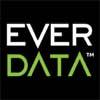
Submitted by admin on

Just like your brick and mortar business, your reputation is intensely influenced by your website and domain name if you are in the online business. Your website represents your reputation. Unfortunately there are some malicious elements out there that know that and plan to take undue advantage of that. They indulge in a very harmful practice known as domain blackmailing. After taking control of your site they would upload some objectionable content on it and would demand a huge ransom to give you back the controls!
How do they operate?
“They are really clever and act really fast”, says Mr. Naveen Sharma, CEO, Everdata Datacenter, a leading Datacenter and hosting service provider in Asia. “They would first buy your expired domain name and then go to lengths to damage your online reputation. Then they can approach you demanding very high money in order to sell you [your own] domain names/website. You would choose to buy- for the sake of your reputation. These malicious individuals may work in large groups that make them even more formidable.” He further informs “They would not only harm your reputation but also subjugate entire resources and endeavors associated with the website. In economic terms, the harm is extremely high!”
There are 2 ways in which you can become a prey to domain squatters:
• As an owner, if you don’t renew your old domain names the blackmailers will buy it and start their nefarious activities
• The other way of blackmailing is to buy the domain names that are very similar to your brand and upload objectionable content on it. If you are a famous personality they may buy a domain name with your name.
Threats associated with not renewing domain name
When you fail to renew your domain registration it is sold through auctions. Anyone can buy your domain names in such auctions. It is completely acceptable if the buyer would like to make a reasonable profit while selling the domain name back to you. Then there are some unethical traders who will demand astronomical prices. Outright malicious elements would even threaten you to pay a particular price or see your online reputation being shattered.
Threats for growing small business
One of the most preferred soft targets of such malicious people are the fast growing small businesses. The would simply buy their domain names through auction and then upload all types of obnoxious content or misleading information on their website. Then they demand the ransom money from the owners to release their websites or give the controls to the real owners. Precaution is preferred here as the cure would be extremely expensive. Instead of waiting until the last moment it is always better to renew your domain name in time. The domain companies keep on sending the regular emails when your domain name is about to expire. You should act instantly. Domain renewal is quick and easy.
How to respond
With your company’s growth, the revenue also increases and reputation becomes much more important to you. Malicious elements are aware of this. They know that your reputation is crucial for you and you would be ready to pay hefty sums if it is at the stake. If you become prey to such malicious elements there are 3 different ways to which you can respond.
• The simplest option is to pay the required price and buy your domain back. However, depending upon the demands of the malicious elements, the amount could be extremely high.
• Another option is arbitration. You can contact ICANN that will set up the process to arbitrate the case. As a result, the malicious elements called cybersquatter will be compelled to sell you the domain name at the fair market price. You may also get them fined for their misdeed they have already harmed your website or domain names.
• You can also take the legal action if you really want to teach the cybersquatter a fitting lesson. Legal action would heavily penalize the cybersquatter and he may also face prison depending upon the scope of his crime.
Use Latest versions
A number websites employ open source scripts or platforms that make their codes easily accessible to everyone, including the malicious elements. The malicious elements would thoroughly examine the code for finding the security loopholes. Tats how they get the unrestricted control over your site via vulnerable portions of script or platform.
The latest versions of any scripts or platform are specially designed to further safeguard the security of the users by minimizing the vulnerabilities and blocking the loopholes. So, by updating the script or platform with the latest version you will effectively increase the security of your website to meet the latest standards. You can simply subscribe to the newsletter service so that you can get the regular updates as the script is updated.
Security Plugins
Security Plugins add further strength to your website’s security. They are specifically designed to identify and foil the malicious attempts that can compromise the security of your website.
Many platforms offer a number of free securities plug-in that is designed specifically according to the configuration of that platform or CMS. For example, Wordpress offers iThemes Security. This plug-in accurately focuses on patching the precise loopholes of a particular platform or CMS. Thus can play a key role in safeguarding your security against inherent loopholes.
SiteLock
Site Lock is one of the most trusted names when it comes to the fortified security. It offers constant monitoring for multiple security aspects like identifying the vulnerability, detecting malware presence, and even active virus scanning for an ensuring an airtight security. That’s not all; there are a number of other processes carried out by SiteLock to detect vulnerabilities and fortifying the security. SO, if you are really series about your website then using SiteLock is almost a must for you.
HTTPS
If you are a seasoned online shopper then you must be familiar with those 5 green letters in the address bar that guarantees the security of your key information like credit card number. Yes, we are talking of HTTPS. In fact, many consumers would walk away from your site if it does not have HTTPS. Whether you are running an e-commerce site or a site that accepts online payments, if you don’t have HTTPS, you might already be losing a huge number of buyers every day!


Add new comment